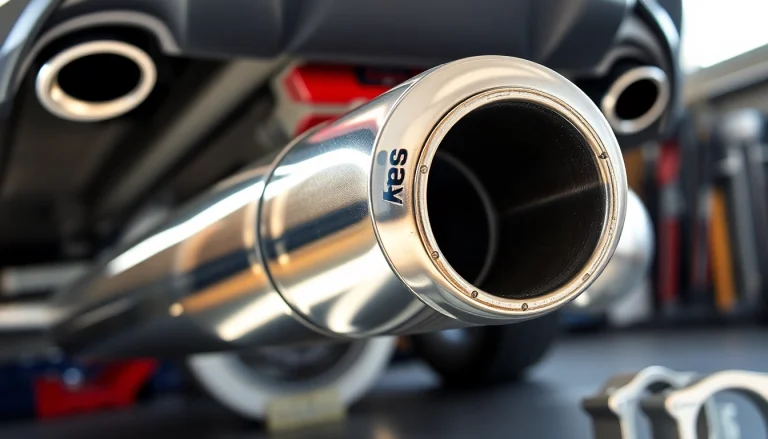Understanding the Basics of Horsepower Calculation
What is Horsepower?
Horsepower is a unit of measurement that indicates the power of an engine. It is defined based on the amount of work the engine can do over a specified period. The term was originally coined by engineer James Watt in the late 18th century to sell steam engines. Today, horsepower represents a crucial metric in the automotive and mechanical industries. Power is calculated based on force and distance over time, showcasing how effectively an engine can transform fuel into motion.
The Importance of Accurate Measurements
For automotive enthusiasts and professionals alike, understanding and measuring horsepower accurately is paramount. Accurate horsepower measurements can determine vehicle performance, enable effective tuning, and help in comparing different engines or vehicles.
Utilizing a Horsepower Calculator can assist in this process, by providing precise calculations based on various engine parameters. This can enhance your vehicle’s performance and handling, tailoring it to specific uses, such as racing, off-roading, or daily driving.
Common Units and Conversions
Horsepower can be measured in different units, with the most common being:
- Mechanical Horsepower (HP): Equivalent to approximately 746 watts.
- Metric Horsepower: Commonly used in Europe, it equals about 735.5 watts.
- Brake Horsepower (BHP): The engine’s output before losses from the drivetrain.
- Wheel Horsepower (WHP): The actual power available at the wheels, taking into account drivetrain losses.
Understanding these units and how to convert between them is essential for anyone looking to evaluate engine performance comprehensively. Familiarity with these measures can aid in reporting, comparing, and discussing horsepower figures across different engines and vehicles.
How to Use a Horsepower Calculator Effectively
Inputting Engine Specifications
Using a horsepower calculator requires detailed information about your engine. Essential specs include:
- Torque: Measured in foot-pounds (lb-ft) or Newton-meters (Nm), torque refers to the rotational force produced by the engine.
- RPM (Revolutions Per Minute): Indicates the engine speed; higher RPMs typically correlate with greater horsepower.
- Weight: For calculating wheel horsepower, the weight of the vehicle can be critical, especially in comparisons between different vehicles.
Optimal outcomes from a horsepower calculator hinge upon providing precise data. Regular maintenance of your engine can ensure that these specifications remain accurate over time.
Understanding Output Metrics
Once you’ve inputted your engine specifications, the calculator will produce several key outputs:
- Calculated Horsepower: The primary value which indicates the engine’s power output.
- Torque at RPM: This helps understand the relationships between torque and horsepower, clarifying how engine speed impacts overall performance.
Familiarizing yourself with these output metrics enables better decision-making regarding potential upgrades or modifications.
Best Practices for Accurate Results
To ensure the accuracy of results from the horsepower calculator, adhere to the following best practices:
- Double-check all input values for accuracy.
- Use consistent units across measurements (e.g., always use lb-ft or Nm for torque).
- Conduct your calculations under similar conditions to maintain consistency.
Adopting these practices will not only yield dependable results but also enhance your understanding of how modifications or engine changes can impact performance.
Factors Affecting Horsepower Readings
Engine Types and Their Influence
Different engine types exhibit varying horsepower characteristics. For example, naturally aspirated engines and turbocharged engines have unique methods of producing power.
- Naturally Aspirated Engines: Rely on atmospheric pressure to draw air into the engine. Horsepower in these engines primarily depends on displacement and RPM.
- Turbocharged/Supercharged Engines: Use forced induction to increase air intake, thereby significantly boosting horsepower. These engines typically demonstrate a non-linear relationship between RPM and horsepower.
Knowing how your engine type influences horsepower readings can guide decisions on performance enhancements and tuning strategies.
Environmental Conditions
Environmental factors can also affect horsepower readings:
- Temperature: Warmer air is less dense, which can reduce the amount of oxygen available for combustion—affecting horsepower.
- Altitude: Higher altitudes lead to lower air pressure, reducing horsepower due to less oxygen for combustion.
Understanding these environmental impacts can be particularly beneficial for racers and vehicle enthusiasts who frequently operate under varying conditions.
Mechanical Integrity and Performance
The overall condition of an engine plays a significant role in its performance and horsepower output. Factors include:
- Engine Wear: Over time, components of an engine can wear down, decreasing efficiency and horsepower.
- Fuel Quality: High-octane fuel can enhance performance, while poor fuel may lead to knocking and reduced horsepower.
- Proper Tuning: Ensuring correct fuel-air mixtures and ignition timing can optimize engine performance.
Regular maintenance checks and adhering to manufacturer specifications are crucial for preserving horsepower output over the lifespan of the engine.
Advanced Applications of Horsepower Calculators
Comparing Horsepower in Different Contexts
Horsepower calculators are not just for individual engines; they provide insights for broader applications including comparisons across vehicle types—sports cars, SUVs, and even trucks. Understanding how horsepower translates into performance can guide purchasing decisions.
Using Power Measurement in Racing Scenarios
In competitive racing, precise power measurements allow racers to glean insights from their vehicles’ performance. The data obtained from a horsepower calculator can inform:
- Race strategy—knowing when maximum power output is available helps in tactical decision-making during races.
- Modifications—insight into what upgrades will yield visible performance benefits.
- Compatibility—understanding how well vehicle components interact at various levels of horsepower can lead to improved race results.
Thus, integrating horsepower calculations into racing scenarios is an invaluable tool for competitive drivers aiming for every tenth of a second.
Integrating with Other Performance Tools
Horsepower metrics can be combined with other performance tools, such as torque, acceleration measurements, and lap times. Integrating these data points allows for more nuanced insights into overall vehicle performance, informing better tuning strategies and modifications.
Troubleshooting Common Issues with Horsepower Calculators
Identifying Input Errors
One of the most common issues when using a horsepower calculator is input errors. Mislabeling units, entering incorrect figures, or overlooking critical parameters can lead to false readings. Always cross-reference values and ensure they are inputted correctly to avoid significant discrepancies in calculations.
Interpreting Inaccurate Readings
If the output from a horsepower calculator seems inconsistent or unlikely, take the time to reevaluate your inputs. Consider the possibility that the conditions under which the calculation was performed may not align with the assumptions of the calculator. Searching for environmental impacts, like those mentioned previously, could help clarify discrepancies.
When to Seek Professional Guidance
While calculators provide invaluable tools for estimating horsepower, complicated scenarios may necessitate professional assessment. If you’re unsure about engine modifications, or suspect an issue with vehicle performance that the calculator can’t clarify, consulting with an automotive professional can provide insights tailored to your specific situation.








